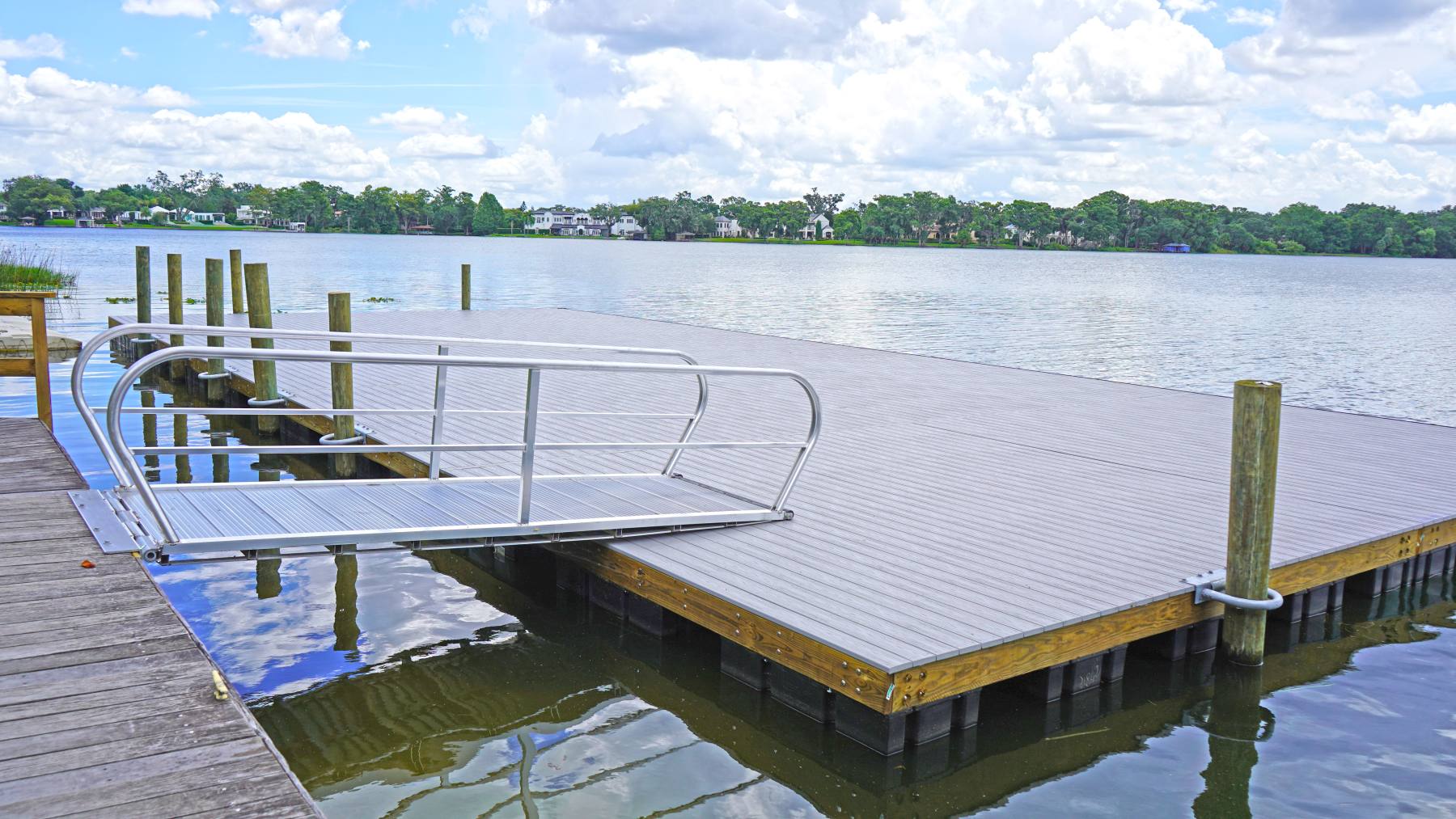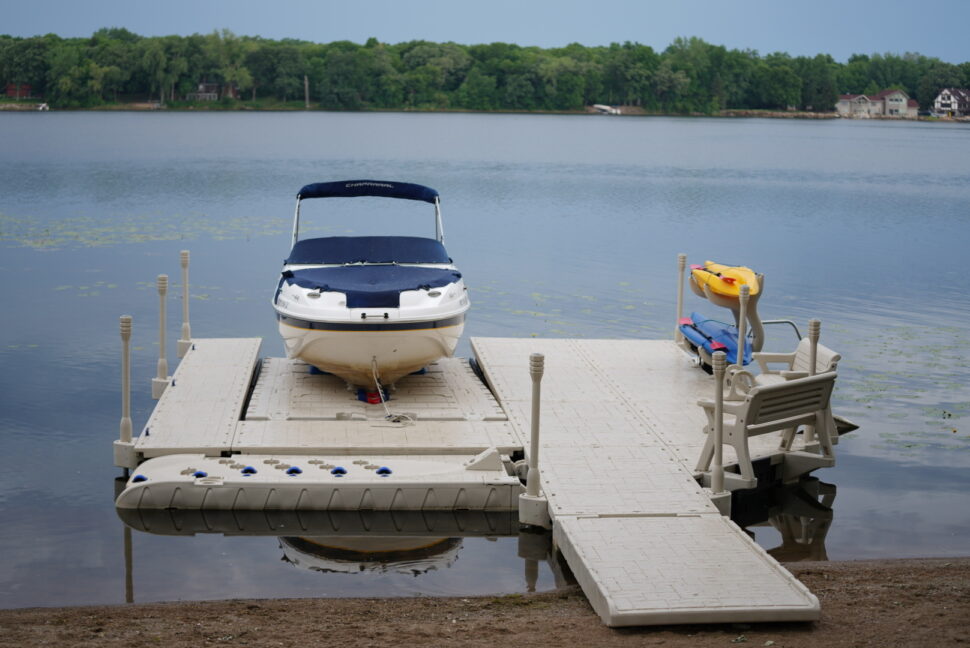Why Your Next Investment Should Be with a Professional Dock Company for Top Quality Docks
Why Your Next Investment Should Be with a Professional Dock Company for Top Quality Docks
Blog Article
The Ultimate Guide to Selecting the very best Floating Docks
Selecting the suitable floating dock requires a thorough understanding of different elements that influence both performance and durability. Aspects such as dock kinds, products, and crucial attributes substantially influence your decision-making procedure.
Comprehending Floating Dock Kind
When selecting a drifting dock, it is necessary to comprehend the numerous kinds readily available, as each serves distinctive functions and applications. Floating docks mainly come under 3 groups: modular, fixed, and pontoon docks.
Modular docks are made up of specific sections that can be quickly set up or reconfigured, making them excellent for altering water degrees and diverse usages, such as industrial operations or recreational activities. Their flexibility permits customization based upon certain requirements.

Pontoon docks are defined by their buoyant structure, frequently composed of several pontoons that supply stability and support. They are specifically appropriate for bigger vessels and are commonly utilized in marinas or for waterside properties. Recognizing these types aids in selecting the most appropriate floating dock to fulfill particular requirements, guaranteeing ideal capability and safety and security.
Key Materials for Toughness
Selecting the right products for floating docks dramatically effects their resilience and longevity. One of the most usual materials consist of timber, plastic, metal, and composite materials, each offering unique advantages and restrictions.
Timber, often preferred for its aesthetic appeal, calls for normal maintenance to hold up against moisture and degeneration. Pressure-treated lumber can boost resistance to rot, but it may still be prone to insects and weathering.

Plastic docks, made from high-density polyethylene (HDPE), are immune to rust, UV radiation, and influence, making them a preferred option for coastal atmospheres. Their lightweight nature additionally promotes easy installment and relocation.
Steel docks, generally created from light weight aluminum or galvanized steel, give outstanding stamina and toughness. They are immune to corrosion, specifically when treated, however may call for extra insulation to avoid warmth build-up in warm environments.
Composite materials, incorporating timber fibers and plastics, supply the advantages of both wood and plastic, resisting wetness and fading while requiring marginal maintenance. - dock company
Inevitably, the selection of materials should line up with ecological conditions, intended use, and upkeep choices to make certain the floating dock stays useful and visually pleasing in time.
Important Functions to Think About
While the choice of products is important, taking into consideration essential functions for floating docks is just as crucial to guarantee ideal efficiency and individual fulfillment. One essential attribute to evaluate is the dock's buoyancy capability, which establishes just how much weight it can sustain without immersing. floating docks. This is essential for fitting watercrafts, individual boat, and even entertainment activities
In addition, mobility is a considerable consideration. Relying on your requirements, you may desire a dock that is easy to transport and take apart, specifically if you plan to transfer it seasonally. click resources Security is one more important attribute; a properly designed floating dock ought to reduce movement brought on by wind and water currents, giving a safe system for customers.
Safety and security attributes, such as non-slip surface areas and rounded edges, are additionally important to stop mishaps, specifically in wet conditions. Take into consideration the schedule of devices, such as bumpers, ladders, and cleats, which can enhance the functionality of your dock.
Setup and Upkeep Tips
Establishing and maintaining a floating dock calls for cautious planning and interest to information to guarantee its durability and optimum performance. Begin by picking a suitable location that lessens direct exposure to solid currents and waves, which can trigger damage. Guarantee that the water deepness suffices for the dock's elevation which it is anchored safely to stop activity.
During installment, follow the maker's standards carefully, as incorrect assembly can jeopardize stability. Usage top quality products immune to deterioration, such as aluminum or treated wood, to improve sturdiness. Routinely inspect all elements, including drifts, adapters, and securing systems, for indicators of damages or wear.
Upkeep is vital for extending the life of your dock. Clean the surface areas regularly to avoid algae build-up and look for any loose fittings that may require tightening up. Guarantee they continue to be undamaged and cost-free from slits if your dock makes use of flotation tools. Furthermore, consider using protective finishings to wooden components to decrease weathering results. By sticking to these setup and upkeep suggestions, you can delight in a functional address and trustworthy floating dock for many years ahead.
Budgeting for Your Dock
Budgeting for your dock is a critical step that can considerably affect your overall contentment and investment in a waterside building. Establishing a clear budget plan aids you browse the different alternatives available and ensures you make informed choices that align with your financial capacities.
Begin by identifying the size and style of the dock you call for, as these aspects will significantly affect the cost. Floating docks can vary dramatically in cost, depending on materials, buoyancy, and functions like ramps and accessories. Study various manufacturers and distributors to compare prices and recognize the marketplace value.
Along with first prices, take into consideration ongoing costs such as upkeep, insurance coverage, and my explanation possible fixings. Allocate funds for these repeating costs to stay clear of surprises down the line. It's also sensible to allocate any needed permits or assessments, which may be needed by regional laws.
Last but not least, remember the possible roi. A well-planned dock can improve your residential or commercial property's value and charm, giving a positive financial effect in the long term. By budgeting properly, you can ensure that your dock fulfills your demands without compromising your monetary stability.
Final Thought
In final thought, choosing the perfect floating dock demands a thorough evaluation of numerous aspects, including dock types, materials, important features, and installment processes. Careful factor to consider of monetary constraints will certainly better ensure a sound financial investment.

While the option of products is essential, taking into consideration important functions for floating docks is just as essential to make sure optimum performance and user fulfillment.Setting up and preserving a drifting dock calls for mindful planning and attention to detail to ensure its durability and optimum efficiency. Floating docks can vary substantially in rate, depending on products, buoyancy, and features like accessories and ramps.In final thought, picking the ideal floating dock demands a complete evaluation of various variables, including dock kinds, products, crucial attributes, and setup processes.
Report this page